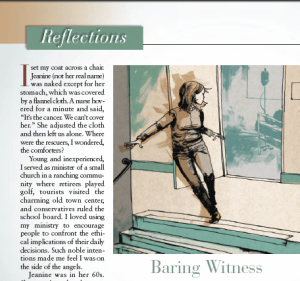If Your Facility Were To Make a New Year’s Resolution, What Would It Be?
We asked the question “If your facility were to make a New Year’s resolution, what would it be?” on our Facebook page yesterday.
Below are some of the responses so far. Is there anything else you might add about your facility?
AMAZING HEALTHCARE
better patient care
maybe respect the staff
best patient safety
excellent mental/emotional health assessment and intervention
Every patient everytime!
i double that for respect for staff
It’s all about what’s best for the patients …
From my point of view….give us all a raise no matter how big or small!
Quality care, NOT Quantity care!!!
Free parking
Be COMPLETELY up on EMR by year end
To get the Drs to improve upon their verbal and written communication to nursing staff and to improve Drs understanding of what is meant by palliative care.





